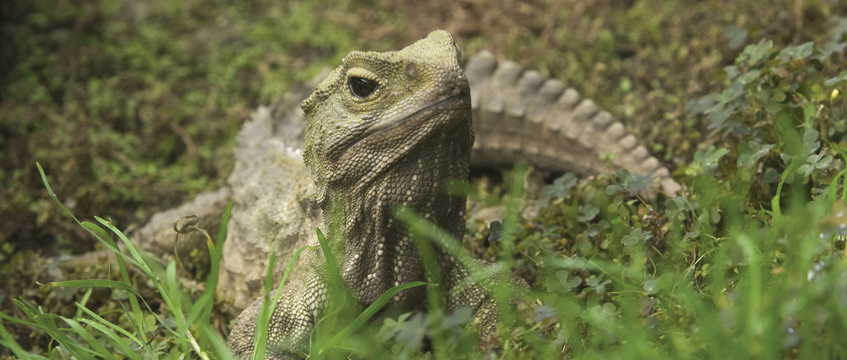Simon Perlmutter and Dan Cohen formally opened the doors to their new firm this week.
The Harris Associates alumni, we hear, thought long and hard about the name, eventually alighting on something that neatly expressed the qualities they were keen to exhibit to clients – adaptability, flair and, um, cold-bloodedness? And so, Chameleon Real Estate was born. Except, it turned out that Chameleon Real Estate had actually been born some years before. Not because Cohen and Perlmutter had been thinking about it for years – though they have – but because a company with that name had already been registered on Companies House. With only a few hours to go before launch (we exaggerate, but not by much), a new and naturally better name was chosen – Tuatara. The name comes from another lizard, this time from New Zealand. But it is even cooler than a chameleon. Why simply blend in to your surroundings when you can be truly exceptional? You’d have to go back to the Jurassic period to find a relative of the tuatara, with its spiny crest, enhanced night vision, longevity and third eye. Wait, what? Yep, tuataras have a parietal third eye on top of their heads, only visible when young through a translucent patch on their scaly hides. It is because of this that the Maori regard them as symbols of perceptive and prophetic vision. Skills which probably would have helped Cohen and Perlmutter when coming up with the name in the first place!
A taxing question
Property professionals are among the worst tax evaders in the UK, new figures show. Research by RIFT Tax Refunds – which presumably shows you a better way to keep something back from the taxman – puts property professionals at number five in its list. Not as bad as those in construction or logistics, but worse, for instance, than those involved professionally in porn. It turns out that, since April 2010, a massive £3.3m in fines has been handed out by HMRC to people in the industry. Hang on – only £3.3m? And that makes it to the top five? Ah, yes. Because these figures tally those few people classed as “criminal”. The rest, we assume, were merely “careless”.
Research for the birds
Diary does not subscribe to the common view that pigeons are vermin. Maybe it’s because we were exposed to Pigeon Street (and its catchy songs) at an impressionable age, but as far as we are concerned, the feathered foragers are adorable, clever and, judging by the number of them you see missing feet and even legs, resilient. So, if they have something to say about real estate, we’re here to listen. And, indeed, it seems they do, according to Malta Today. If, for some reason, that august organ is not on your regular reading list, we’ll do our best to summarise. Apparently, pigeons hate modern architecture. This assertion is backed up by what we are told is a first-of-its-kind statistical survey based on pigeon counts in Malta. For the study, published in science journal Xjenza, statistician Fiona Sammut teamed with biologists Cassandra Borg Muscat and Patrick J Schembri to count pigeons using “transect surveys” in different types of urban environments. The highest density of feral pigeons was found in park areas, followed by main roads, agricultural areas, side streets and, lastly, the suburbs. Their conclusion? That “the abundance of feral pigeons is mostly affected by architecture: abundance was low where there was a preponderance of modern buildings”. We can only hope some enterprising scientists will take up the baton and put these findings to the test in London, and have to wonder how high “on statues” will figure in the findings.
Money can buy you happiness (but probably won’t)
January blues still getting you down? Tired of the glum faces on your morning commute? Resentful that all your hard-earned salary is going towards putting the heating on? Why not pick up sticks and move to somewhere more cheery, and save on outgoings at the same time? Our research-happy friends at estate agency Benham and Reeves have tallied the average “happiness rating” of places in Britain against areas of below-average house prices, to reveal where you can put the biggest smile on your face for the least outlay. Apparently, the average happiness rating across the UK is 7.45 (we are not told what that is out of, but surely it can’t be 10) but, overall, the areas with the highest happiness ratings (8+) are actually home to the lowest average house price at £284,377. Conversely, the most miserable places (7 and under) cost you the most to live in, with an average of £377,028. So, where is the sweetest of spots? How about Pendle in Lancashire (just saying its name improves Diary’s mood) – an 8.1 happiness rating can be yours for just £141,069, less than half the national average for a house. And the absolute worst? Colchester. It’s home to the UK’s lowest happiness score (6.76) – possibly because, just by being there, you’ve overpaid 12% for your home.
Share your tales from the quirky side of the property industry by e-mailing diary@eg.co.uk











